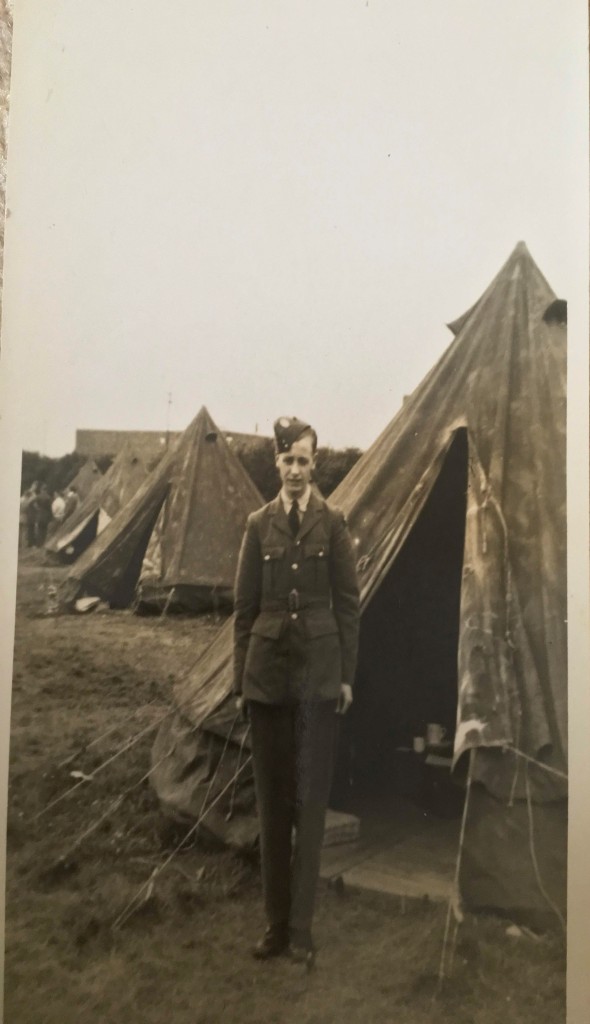Just some random thoughts/discoveries/lists/whatever about the year that is (as I write this) drawing to an end.
Games I have played
- Satisfactory – in which you play a nameless functionary of a mysterious corporation, dumped on an unknown planet in order to build ever-more complex factories for no other reason than that’s what you’re supposed to do. Your reward is more things to build. Oh, and you have to make the whole thing as efficient as possible. There is no point to what you’re doing other than that. It’s fantastic.
- SimCity 4 – it’s nearly 20 years old now, but it’s still the best city-building game ever. Ever. Detailed, complex, utterly absorbing, with a huge modding community behind it (there are still mods being released for it), it’s the only city builder that truly makes you feel like you’re actually in charge of a city, making decisions that actually have an effect on the city you’re building. It all went downhill from this point.
- Townscaper – the almost complete opposite to SC4. You build random buildings by clicking on the water. Clicking in different places allows you to customise your town in different ways. The whole thing has a wonderful “Mediterranean fishing town” feel to it. There are no people, only a few seagulls; there’s no budget, no transport or education system; it’s just you creating what you feel like and making surprise discoveries along the way. Bliss.
Magazines
- Amiga Addict – a brand new Amiga magazine, in 2022! (Although it was launched in 2021, I only started buying it this year). It’s a wonderful blend of nostalgia and news of the still-vibrant Amiga scene, featuring reviews of games old and new, interviews with people from the Amiga’s heyday, and about a million different ideas of things to do with your Amiga, real or emulated. And I find it wonderfully astounding that in 2022, I can go into WH Smith and buy an Amiga magazine. The guys who put this together are amazing and deserve support.
Honourable mention to Pixel Addict, which takes a look at the wider, non-Amiga vintage computer scene. - Railway Modeller – yeah, yeah, model railways are sad, geeky, whatever. Don’t care: this magazine is fantastic. There’s something wonderfully old-fashioned about it, in terms of its presentation, language and so on; yet it still keeps on top of new developments in the model railway scene, even if sometimes it seems to be slightly baffled by it all. The magazine is now 73 years old and is something we should treasure.
- Retro Gamer – Just the best guide to the ever-growing retro gaming scene. It features the big hits of past decades, but gives welcome attention to the hidden gems as well. It’s coverage of current developments in the retro scene, whether it’s new releases by big companies, homebrew games (ie games made by one or two developers), or mini retro consoles, is second to none. It also remembers that such games are meant to be played, not just hoarded and bought for ever-more-insane amounts of money (although it does give a spotlight to collectors as well). It’s just slightly scary that the PS2 generation is now considered retro. Speaking of…
Things that make me feel old
- That my oldest daughter is 16 and will be finishing school in the summer; and that my youngest daughter left primary school in the summer just gone.
- That for the first time in my life, our MP and (current) PM are both younger than me.
- Reaching our 20th wedding anniversary. 20 years!
Books/music/comic books etc.
- Four Thousand Weeks, by Oliver Burkeman – the antidote to time management books that posit all kinds of schemes to allow you to make your life more “productive” (ie rushed, stressful and unfulfilling). It basically starts from the idea that the way to deal with all this isn’t to try one of these schemes, but to accept that you are a finite human being with a finite amount of time on earth (the 4000 weeks mentioned in the title). The best thing to do is to accept that you aren’t going to fit in everything you want to do in this time, let go of the guilt and learn to value what you do do.
- First You Write a Sentence, by Joe Moran – a love-letter to sentences, which Moran suggests are the basic building blocks of writing (more so than words, as words need to be put together into sentences). He’s not trying to introduce rules for writing good sentences, so much as inspire a love of writing them and what such sentences might look and sound like. It helps that he writes beautifully; and the outcome of all this is to make you want to write something.
- I’m also fighting my way through The Brothers Karamazov by Dostoevsky, just for the challenge. I’m 2/3 of the way through; not entirely sure of everything that’s going on, but determined to finish it. And finding it an interesting read.
- Handmade: Britain’s Best Woodworker (Channel 4) – I’m referring to the second season, which is just enchanting (I’ve only seen one episode of season one, and it wasn’t quite right). It’s everything that the Bake Off was and seems to be turning away from: challenging without being deliberately-difficult, entertaining, warm-hearted, informative and just lovely in the best way possible. Sophie Sellu and Tom Dyckhoff are the judges, bringing the right amount of encouragement and critique to their roles. It gets you truly involved in the contestants and their hopes and aspirations for the competition, as well as their struggles. And the right person won.
- The New Champion of Shazam! – in which Mary Batson, the sister of Billy Batson aka Shazam, is told by a talking rabbit that her brother has chosen her to take on the mantle of champion of Shazam as he’s stuck on the rock of eternity. As you can tell, it’s based on real life. At this point, she’s 18 and has just started a new life at college in New York and doesn’t want to revisit her superhero past, even after she saves the day as whatever her superhero name is. Her life is further upturned as she has to move back to Philadelphia after her foster parents mysteriously disappear, and she finds herself ever-more entangled in that mystery and the weird events and enemies that surround it.
The characterisation of Mary is just spot-on, showing her power in her superhero form, but also the toll that everything is taking on her in both her identities. If it’s possible to empathise with a fictional 18 year-old who can become a superhero with god-like powers then I did. But she shows a remarkable amount of pluck and determination to keep going. The final part is out in January and I want to see how it resolves, because I’m utterly engrossed. - I’m struggling to think of any music that I’ve discovered that I want to shout about this year. In the last few weeks, however, I’ve rediscovered Queen’s 1989 album The Miracle. It’s something of a flawed gem, the first album they made after Freddie Mercury was diagnosed with AIDS (and the last one they thought they’d make before he died, though in the end they also released Innuendo in 1991, which is magnificent). It’s a bit rough-and-ready, and some of the tracks don’t sound quite finished, perhaps because they thought they needed to get it out as soon as possible. But the singles are amazing (except maybe Scandal, which is a bit dull) and it has a life and energy about it that Queen had at their best. There’s a new collectors’ edition out, but I’m quite happy with the “normal” version.
- This is going to sound weird, but I don’t think I’ve sat down and watched a whole movie all the way through, at least not by choice (as opposed to just being in the room when someone one else is watching one). Might have to rectify that a bit this year and work through some of the approx. 2 million DVDs I’ve got and not watched.
Other random stuff
- Unexpected highlight of the year: Being invited by our previous MP, Kate Green, to the National Parliamentary Prayer Breakfast at, erm, Parliament, in the summer. A wonderful event, worshipping in this building that has captivated me for years, followed by a tour of the building. And, to top it all, an event that apparently set in motion a chain of events that led to the downfall of our then-PM (Boris Johnson – remember him?).
- “How did I miss that” of the year: being in London when pretty much the entire government was resigning, even standing among a crowd outside Downing Street as the ministers/dominoes were falling, and not having a clue what was going on.
- Anxiety disorder-worsening happenings of the year: pretty much The News in general this year, though I particularly wish that Vladimir Putin had had a very selective form of amnesia that made him forget that Russia had nuclear weapons.
- My favourite waste of time of the year: aside from doom-scrolling on Twitter (which I’d struggle to describe as “favourite”) it’s been ChatGPT, an AI-based chat-thing that apparently is capable of doing amazing things. I use it to get it to write mad ideas for superhero stories. I’ve also entered into discussions with it about various Bible passages, having asked it to write a sermon based on those. It’s interesting.
- Moment of the year: Huw Edwards announcing the news that the Queen had died. We’d probably known it was coming most of the day, but to actually hear it being announced was “woah!”. Huw did an amazing job, it’s difficult to know how he could have made such a momentous announcement in any better way. And if you watch the footage carefully, you’ll see that just before he announces the news, the camera focuses in on the Union Jack at half-mast, a visual announcement before Huw verbally confirmed it.
- Thing that keeps striking me the most: The “otherness” of God. Like, if God’s ways are higher than our ways and his thoughts greater than our thoughts, how dare we humans say anything about God? It annoys me when people speak too glibly about God, especially when doing so in defence of their own political positions (looking at you, US right-wing evangelicals). It’s miracle and grace that we can know or say anything about God and I think that needs to be front and centre in our minds. Which makes Christmas all the more remarkable, when we discover God lying in a manger as a new-born baby.
- Annoying habit that’s crept into my life this year: mixing up “our” and “are”. Never done it before, now it’s there all the time. So annoying!
- Stuff I wish for the new year:
- That we’d learn that being kind has to apply to people you fundamentally disagree with, otherwise it’s no virtue whatsoever;
- That Radio 2 would make the following changes: move Dermot O’Leary to weekday breakfasts and put Zoe Ball on weekends; give Tina Daheley Jeremy Vine’s lunchtime show; do whatever it takes to make sure Ken Bruce never leaves, if necessary employing Rob Brydon to do his impression of him if he does decide to leave; put Tony Blackburn back on Pick Of The Pops and find a new presenter for Sounds Of The Sixties; issue a general edict to all its presenters to calm down a bit. Yes, I am old.
- That I’d finally get my loft/study/man cave/disaster zone sorted and tidied.



